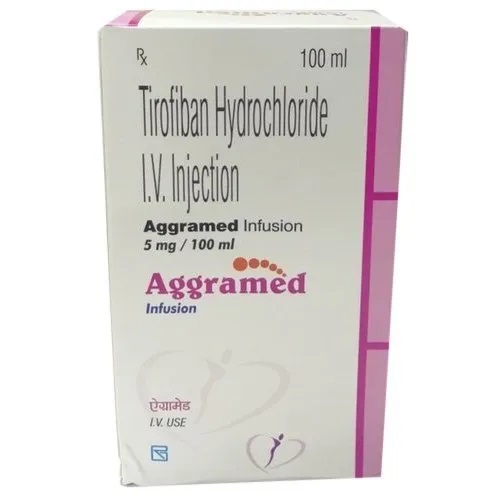Tirofuse Injection
TIROFIBAN
Tirofuse Injection should only be administered under the supervision of a doctor The doctor will determine the appropriate dosage and duration of treatment for you It is important to continue taking any other medications prescribed by your doctor for your longterm treatment even after receiving this injection There are certain side effects associated with the use of Tirofuse Injection It may cause a decrease in blood platelets which can increase the risk of bleeding If you notice a rash consisting of pinpoint spots or observe blood in your vomit urine or stool it is important to inform your doctor immediately Headache nausea and fever are also potential side effects of this medication Before taking Tirofuse Injection it is important to inform your doctor if you have any bleeding disorders kidney or liver disease It is also crucial to inform your doctor if you are pregnant or breastfeeding and to disclose all other medications that you regularly take Your doctor will provide you with a detailed explanation of the benefits and risks associated with Tirofuse Injection before administering the medication


When will I feel better after taking Tirofuse?
Tirofuse reduces your risk of developing blood clots in the blood vessels of your leg, lungs, heart and brain. You may not feel any difference after taking Tirofuse. However, keep taking this medicine as prescribed by your doctor because you will still be getting its full benefits.

What medicines should I avoid while taking Tirofuse?
Tirofuse can interact with several medicines. Do not take any medicine without talking to your doctor.

Can the use of Tirofuse increase the risk of bleeding?
Yes, Tirofuse increases the risk of bleeding. Always be careful while doing activities that may cause an injury or bleeding. Tell your doctor immediately if you notice any abnormal bruising or bleeding.













.svg)
